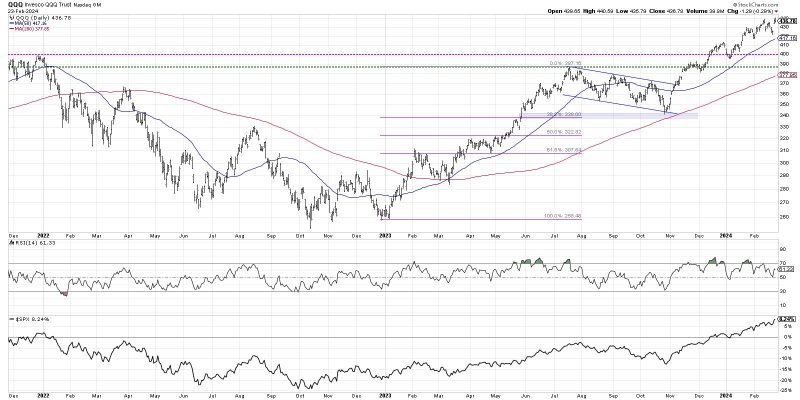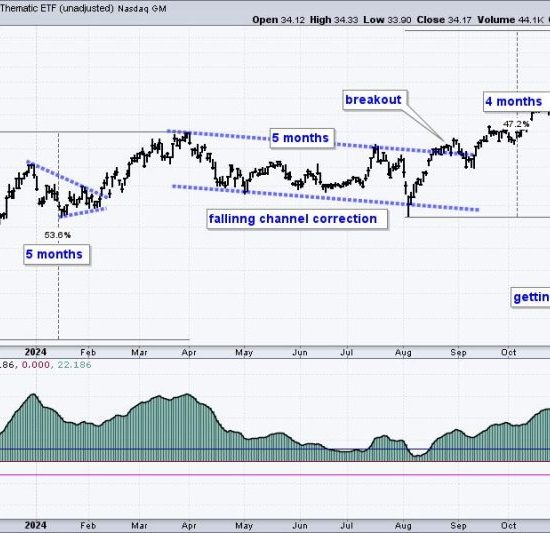The Invesco QQQ Trust (NASDAQ:QQQ) is an Exchange-Traded Fund (ETF) that tracks the performance of the NASDAQ-100 Index. It’s one of the biggest and most popular ETFs in the world, with holdings in some of the biggest tech firms like Apple, Microsoft, and Amazon. These three companies alone account for over 30% of QQQ’s total market capitalization. However, with the noticeable rise in tech stocks and the NASDAQ index in recent years, the question arises – how overextended are you, QQQ?
Understanding Overextension
Overextension refers to a situation where an investment, in this case, QQQ, has surged too far and too fast. It rises to a level above its fundamental long-term support zone due to extreme investor optimism. This often results in a sharp and swift correction as prices return towards fair value.
Measurements of Overextension
Technically, overextension can be measured in different methods, among which includes studying price-to-earnings (P/E) ratios and examining deviation from long-term moving averages.
Currently, QQQ’s P/E ratio is hovering near historic highs. While P/E ratios are essential tools for valuing a company, an excessively high P/E could be a sign of an overvalued or overextended security. Yet, the P/E expansion has been partly justified by super low-interest rates and robust earnings growth.
Moreover, QQQ is trading significantly above its historical average in relation to its 200-day moving average. While a ten to twenty percent above this moving average is considered normal during a secular bull market, any figure higher registers as overextension and cautions investors.
Market Footprints
Market forces often leave footprints that can alert investors to potential overextension. One such sign is increasing leverage, where investors borrow to invest in more tech stocks, thereby ratcheting up risk in the market. Another footprint is investor complacency, characterized by low levels of fear and high assurance of continual gains.
Hypersensitive Tech Sector
The tech sector, where QQQ holds a significant chunk, is hypersensitive to interest rate changes. Low-interest rates generally have shepherded investors towards tech stocks, but as central banks hint at increasing rates, these stocks may become less attractive. Also, the tech sector’s international exposure could make it vulnerable to risks from geopolitical events.
QQQ’s Diversification Advantage
To QQQ’s advantage, it offers some diversification, albeit limited. While it is heavily tech-weighted, QQQ also holds stakes in various sectors, including healthcare and consumer discretionary. This diversification can somewhat act as a buffer against the tech sector’s volatility, adding a level of protection for investors.
It’s crucial to note that while current indicators suggest QQQ is overextended, proving it conclusively remains a challenge. Much rests on the future of interest rates, the strength of earnings growth, and global geopolitical trends. Therefore, while QQQ may look overextended now, it depends significantly on the economic atmosphere and the success of its underlying holdings.
Hence, it is advised for investors to always conduct their due diligence and consider their risk tolerance and investment goals. While the QQQ may remain a viable investment option for many, potential overextension indicators cannot be ignored.




